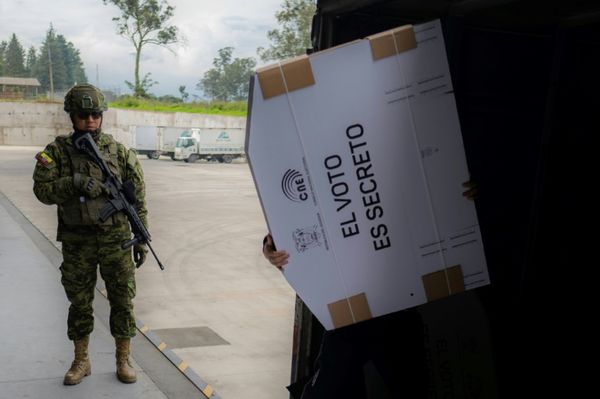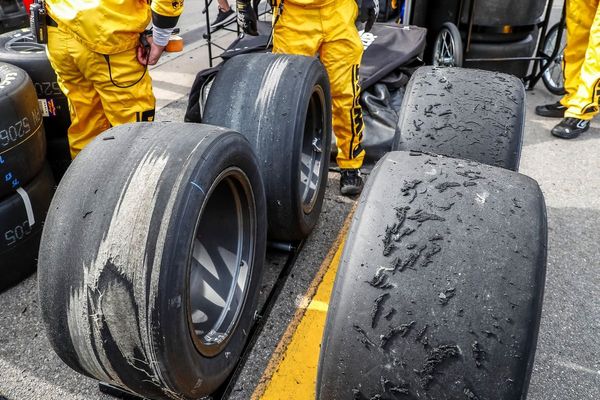Seen as a hero by some and a villain by others, Aung Sang Suu Kyi became an icon of the pro-democracy movement before drawing international condemnation.
Now, she has been given two years of detention after seeing decades of the progress she brought to her country snatched away.
So how did this all happen?
Who is Aung San Suu Kyi?
The daughter of Myanmar's independence hero, General Aung San, Aung San Suu Kyi spent most of her early life overseas.
In 1988, she returned to Myanmar to look after her mother, but it was at a time of major political upheaval.
Protesters were demanding democratic reforms to bring to an end decades of what was effectively military rule in the isolated, socialist country.
Suu Kyi joined the movement and helped to organise rallies around the country.
But not long afterwards, the protests were crushed, and in 1989 she was placed under house arrest, which continued on and off for 15 of the next 22 years.
The political party she helped found — the National League for Democracy — won a landslide election victory in 1990, but the military government nullified the result and refused to hand over power.
Fame grows, house arrest ends
While still under house arrest in 1991, Suu Kyi was recognised for her activism and awarded the Nobel Peace Prize.
It cemented her international reputation as a democracy icon and several movies about her were made.
And politically, things began to change.
In November 2010, Suu Kyi was released from house arrest
And in 2011, the military relinquished power, though a new constitution entitled it to a quarter of the parliament's seats and control of certain ministries.
In 2012 by-elections, she won a seat in parliament.
In 2015, Suu Kyi led her party to a another landslide election victory, establishing Myanmar's first civilian government in half a century.
However, she was technically not the president because of a clause in the constitution banning anyone with foreign family members from taking the top job. Instead, she was referred to as Myanmar's de-facto ruler.
How did she come to be criticised?
Suu Kyi faced a severe international backlash for her government's treatment of the country's mostly Muslim Rohingya minority.
In August 217, insurgents claiming to represent Myanmar's Muslim Rohingya minority attacked security forces in the western state of Rakhine, killing dozens.
The Myanmar army responded with a brutal counter-insurgency campaign that included mass killings, rape and arson, and eventually drove more than 730,000 Rohingya into Bangladesh.
Critics argued the military's actions constituted ethnic cleansing and possibly genocide.
And to the dismay of longtime admirers, Suu Kyi defended the actions.
She told the International Court of Justice, as it worked to determine whether Myanmar's soldiers committed genocide, the response was mostly appropriate.
What's behind the coup and her arrest?
Myanmar's second election since the military relinquished power in 2011 was held in November last year, with Suu Kyi's party winning a resounding 83 per cent of parliamentary seats.
The vote was widely seen as a referendum on her fledgling democratic government, which had been in charge since 2015.
The Union Solidarity and Development Party, which experts say is effectively a military proxy party, won just 33 seats.
But, in the weeks following the poll, Myanmar's military questioned the result, saying there was evidence of widespread voting irregularities — something the election commission disputed.
Tensions grew and the army seized power in a coup.
The world watched in horror as the nation that had come so far slid backwards.
And Myanmar citizens, desperate to cling on to the progress the country had made, held nationwide demonstrations.
But security forces quashed them with deadly force.
According to a detailed tally compiled by the Assistance Association for Political Prisoners, they have since killed about 1,300 civilians.
The coup culminated in the military arresting and charging Su Kyi and other top government officials on February 1 this year — just before the the new session of parliament was set to convene.
So what now for Suu Kyi?
It follows a Myanmar court finding her guilty of incitement and breaching coronavirus restrictions.
According to MRTV, the sentences would be applied "at their current detention places", apparently meaning they would not be sent to prison.
The incitement case involved statements posted on her party's Facebook page after she and other party leaders had already been detained by the military.
And the coronavirus charge involved an election campaign appearance.
It's difficult to know what exactly happened in the court because Suu Kyi's trials are closed to the media and spectators, and her lawyers, who had been the sole source of information on the proceedings, have been served with gag orders forbidding them from releasing information.
It's worth noting that the cases against Suu Kyi are widely seen as contrived and simply a way to discredit her, preventing her from running the country again.
But the outcome is the same: Myanmar's constitution bars anyone sent to prison after being convicted of a crime from holding high office or becoming an MP.
ABC/wires







